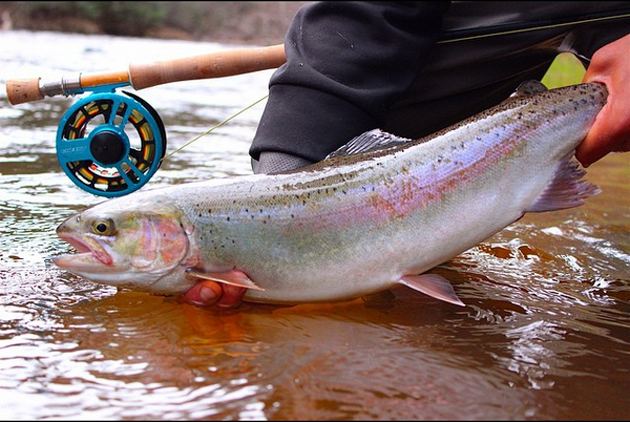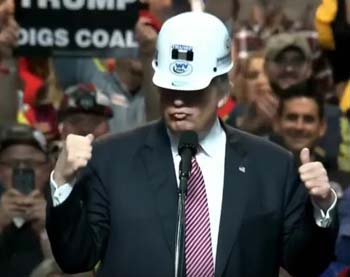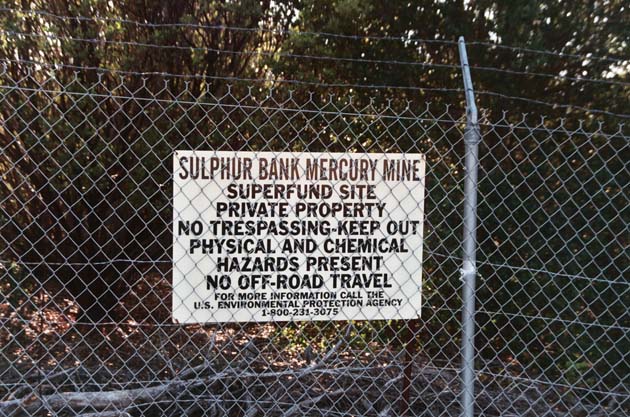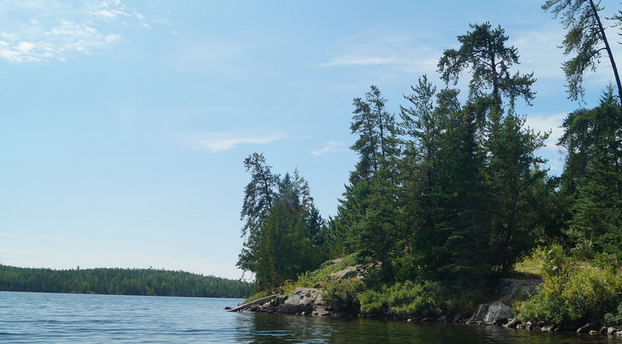By Skip Clement
Rep. Tom Emmer, a Tea Party Republican, promised his fellow Minnesotans he’d build them a better industrial wasteland, one toxic mining spill at a time
[dropcap]N[/dropcap]ot many would disagree with labeling a politician guilty of duplicity if he or she intentionally subvert voters’ expressed demands. In the instance of Minnesota’s Boundary Waters, over a million acres of protected wilderness, several radical politicians qualify as betrayers of our national conservation interests. The orchestrator, the occupant of the highest office in the land and his mining invested cabinet members, Interior Secretary Ryan Zinke, Environmental Protection Agency Administrator Scott Pruitt, and the minions of the “House” – so far.
Minnesotans live in an ore mining empowered state. They do not take kindly to no mining proposals. In the case of ore extraction in Minnesota’s Boundary Waters, they were given a choice and invited to scrutinize the proposed sulfide-ore copper mine. They rejected it soundly, even in mining dominated districts – under 20% (another poll 30%, earlier in 2017) of the voters were for the mine.
A day that may live infamy. A bad Minnesota’s Boundary Waters outcome has an effect more tsunami than ripple
On November 30, 2017, the House of Representatives voted yes to H.R. 3905, a bill sponsored by Rep. Tom Emmer, a Tea Party Republican from Minnesota. A bill that, if it finally makes it to President Trump’s desk for signature, will open the floodgates for legally mining in the entirety of the U. S. side of the Boundary Waters, and serve as the gateway edict allowing mining interest the right and powers to mine almost anywhere in America.
The environment is of no concern at all to the current administration. They even propose doing away with requiring financial responsibility for mining interests – even foreign companies. It’s a take the money and run free for all.

A nice BWCA trout. The Superior National Forest in northeastern Minnesota is home to one million acres of pristine, untouched (so far) wilderness known as the Boundary Waters Canoe Area (BWCA). Hundreds of lakes that can only be accessed by canoe create America’s greatest freshwater fly fisher’s paradise. Animals in the lineup: lake trout, brook trout, smallmouth bass, northern pike, muskie, walleye, black crappie, rainbow trout, perch, bluegill, splake, brown trout, largemouth bass, and more. Image Josh Beasley – Amberjack Fishing Journal.
Alternate realities are selling well these days
Emmer claimed the H.R. 3905 legislation, permitting sulfide-ore copper mining in Minnesota’s Boundary Waters, is critically important to the United States’ national defense. A claim so vacuous that it’s equivalent would be to our subsidizing sugar production, which we actually do, a corporate welfare program that snaked its way into stardom by politicians selling the idea that cookies, Pop-Tarts®, and chocolate cakes are vital to our national security. Sorry, yes, it’s true.
Thanks, Mr. President
Yes, under the Trump Administration, clean water and air are out. The right to pollute is the new American norm. Now, even foreign corporate rights supersede those of American citizens’ voter rights – just as in Emmer’s H.R. 3905 edict regarding Minnesota’s Boundary Waters.
The Trump administration is also proposing that extraction companies do not have to provide evidence of financial responsibility. You know, take care of things when they go sideways. History tells us they most surely will – that’s why there’s a SUPERFUND since “WE” will be paying for the poisoned drinking water, polluted rivers, and deforested landscape restorations.

Donald Trump: “Clean coal can meet the energy needs of the United States for the next 1,000 years.” Photo Resilience.org.
Absolute conservation irresponsibility
The current presidency is even more irresponsible than that of the Harding Administration. However, Harding’s boys hopes of allowing corporate America to steal public lands was quashed by men, only men at that time, with integrity – doing the right thing quashed the idea.
What presidents, other than the obvious… Teddy Roosevelt and Barack Obama, have been extremely outspoken about protecting the environment?
The following are some of the combined successes of our modern day presidents. Some presidents achievements will surprise you, as will a few missing that you probably thought would have been greater conservation legislation contributors.
John F. Kennedy:
Legislation that was responsive to Rachel Carson’s book, Silent Spring, a landmark work of environmental writing that chronicles the harmful effects of pesticides on the environment – particularly those pesticides, including DDT, that was being administered via aerial spraying.

President Jimmy Carter is the most skilled fly fisher among our outdoor enthusiast presidents. Photo credit unknown.
Lyndon B. Johnson:
1. Clean Air Act, 1963.
2. Pesticide Control Bill, 1964.
3. Water Quality Act, 1965.
4. Water Resource Planning Act, 1965.
5. Solid Waste Disposal Bill 1965.
6. Water Conservation Act, 1965.
7. Air Quality Acts 1966 and 1967.
Richard Nixon:
Although he left office disgraced, his impact on laws protecting the environment, no doubt politically motivated, compare to the impactfulness of Teddy Roosevelt and Barack Obama on the conservation movement.
1. The Environmental Protection Agency (1970).
2. The Clean Air Act (1970).
3. The National Oceanic and Atmospheric Administration (NOAA, 1970)
4. The Clean Water Act (1972).
5. The Endangered Species Act (1973).
Jimmy Carter:
1. Strengthened role & perception of the EPA.
2. Preserved wilderness areas of Alaska.
3. Established “Superfund” to clean up toxic mining, coal, and chemical waste sites.

George H.W. Bush (left) congratulates his son George W. Bush as the two former presidents attend the dedication of the George W. Bush Presidential Center in Dallas, 2014. Photo David J. Phillip/AP
George H. W. Bush:
1. 56 new wildlife refuges.
2. 3 million acres of wetlands restored.
3. 17.8 million acres of public lands protected.
4. Signed the Clean Air Act reauthorization.
Bill Clinton:
1. Clinton protected more than 4 million acres of public land in the form of national parks, monuments, and wilderness.
2. The U.S. Forest Service enacted the so-called “roadless rule” which put nearly a third of the national forests – roughly 60 million acres off-limits to most development.
3. Strengthed the EPA.
George W. Bush:
1. Eliminated a $4.9 billion maintenance backlog in our national parks over five years.
2. Supported the Comprehensive Everglades Restoration Plan with a $3.1 million increase over the 2001 budget, a total of $122.7 million for 2002.
3. Land and Water Conservation Fund advancements.
4. Prohibit mining, oil and gas exploration, and drilling at national parks.
5. Increased park trails by 5,200 miles.
6. Restored thousands of acres of parklands to natural conditions.
7. Created three vast new Marine National Monuments in the Pacific Ocean, protecting an area larger than California.
Where the Trump people are taking Minnesotans – against their will, and Americans with regard to conservation, is a horrible place fraught with dangers and a no-win outcome for America and the world.
The H.R. 3905 bill puts the fate of the Boundary Waters in the hands of a Chilean mining conglomerate, Antofagasta, which owns Twin Metals Minnesota LLC. Antofagasta has a devastating record of environmental pollution at its South American copper mines, including a $23 million fine for water pollution at its flagship copper mine in Chile’s Atacama desert.
Antofagasta also has a history of labor strife, and of taking more water than permitted. Andronico Luksic – the head of Chile’s wealthiest family and owner of the Luksic Group, which controls Antofagasta – has a documented history of doing big-money favors for Presidential family members in Chile and the U.S.
Neither Antofagasta nor its subsidiaries have ever operated a copper mine in a water-rich place such as the Superior National Forest

California – another SUPERFUND site. You know, the clean up you’re paying for because the mining company said, “Hey, sorry but we’re done here, adios” Photo by Marcia Wright, a Commons License image.
The mines that Antofagasta/Twin Metals wants to build would be in the headwaters of the Boundary Waters, the only significant lakeland Wilderness Area and the most visited Wilderness in America. Protecting the world-class recreation in the Boundary Waters Canoe Area Wilderness (BWCAW) has home-grown financial impactfulness that begs attention. It supports a $45 million recreation economy – small businesses whose livelihood depends on local recreationists and more than 150,000 annual visitors.
The H.R. 3905 also undermines the Antiquities Act, stifling presidential authority to protect Minnesota’s land and water, and threatening the very foundation of this law and ALL the places it protects.
[information]More commentary on Boundary Waters SNAFU:
Backcountry Hunters & Anglers . . .
Featured Image: Minnesota Boundry Waters –
[/information]



Join the discussion One Comment